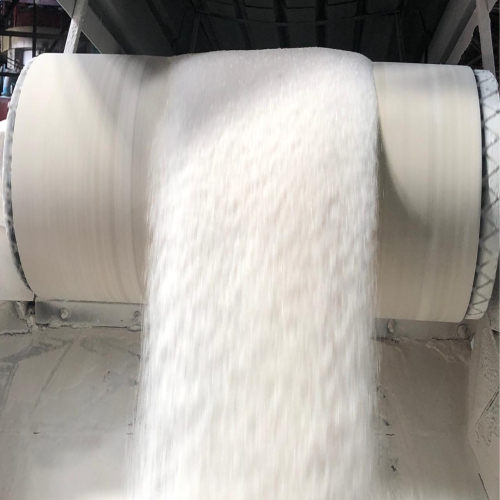Sugar in India’s Key Growing Areas Under Threat From Poor Rain

(Bloomberg) — Sugar crops in some of India’s major growing regions are in desperate need of rain as drier conditions threaten the production outlook, which may place more pressure on containing rising food costs.
Rainfall is badly needed to replenish groundwater used for irrigating crops in Maharashtra, Sanjay Khatal, the managing director of the Maharashtra State Co-Operative Sugar Factories Federation Ltd., said in an interview. The state is India’s biggest sugar producer, accounting for about 37% of output.
“At the moment, the crop is at risk, but if rains improve in the balance period of the monsoon season, then the situation will take a turn for the better,” he said. Some parts of Maharashtra have received as much as 20% less rain than normal since the start of the season, according to the weather bureau.
A smaller crop could prompt the government of Prime Minister Narendra Modi to curb exports to prevent a surge in domestic prices ahead of elections early next year, similar to the measures India has already implemented on rice. Maharashtra’s Khatal said it’s too early to make a prediction about sugar production given there is more than a month before the monsoon ends.
The Indian government will make a decision about overseas sugar shipments for 2023-24 when actual estimates of total production are available, according to the food ministry.
The South Asian nation is the world’s second biggest producer after Brazil, and any production shortfall and subsequent export ban could reverberate across markets, boosting sugar futures traded in New York and London. India allowed mills to export about 6.1 million tons in 2022-23, compared with 11 million tons a year earlier after late rains reduced yields and cut output.
The New York contract, which climbed for a third day after reversing losses, is headed for a 2.3% weekly gain.
“There aren’t any talks with the government on sugar exports at present,” said Aditya Jhunjhunwala, president of the Indian Sugar Mills Association. “We will assess the crop after monsoon season is over in September and approach the government on allowing exports after that,” he said, adding there will be enough supplies next season to meet domestic demand.
The group estimates production at 31.7 million tons in 2023-24 and domestic consumption at 27.5 million tons, leaving a surplus of 4.2 million tons. India’s planted sugar cane area was at 5.61 million hectares (13.9 million acres) as of Friday, little changed from a year earlier, according to the farm ministry.
Lower Rainfall
Even though 94% of India’s sugar cane area is irrigated, rains are needed during the monsoon from June to September to fill dams, ponds, wells and replenish ground water. Some areas of Karnataka have received as much as 27% less rainfall so far, while in Uttar Pradesh, rains have been mixed.
Uttar Pradesh, Maharashtra and Karnataka account for more than 80% of India’s sugar cane production, according to the agriculture ministry. As of Thursday, water storage in the country’s 146 main reservoirs was 21% less than a year earlier, according to the state-run Central Water Commission.
The harvest in Karnataka, the third biggest producer, will likely fall by 20% in the year starting October due to less rain, according to Shivanand H. Kalakeri, the state’s commissioner for cane development and director of sugar.
“We have asked mills to start a little late next season as the crop needs some more time to mature,” Kalakeri said. Factories normally begin crushing in the middle of October, Kalakeri said.
Source Link: https://finance.yahoo.com/news/sugar-india-key-growing-areas-125936228.html
















